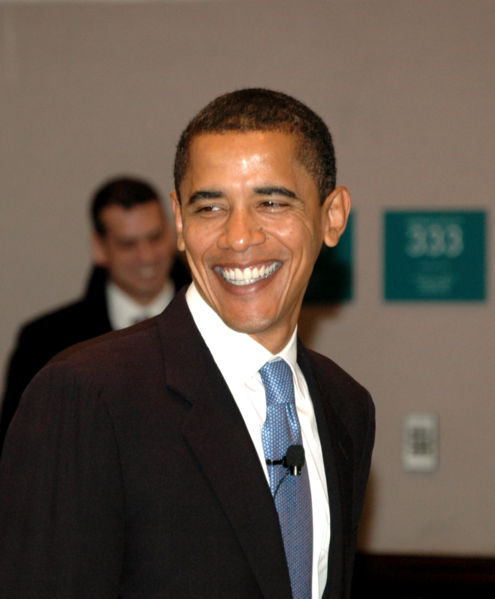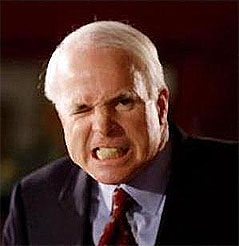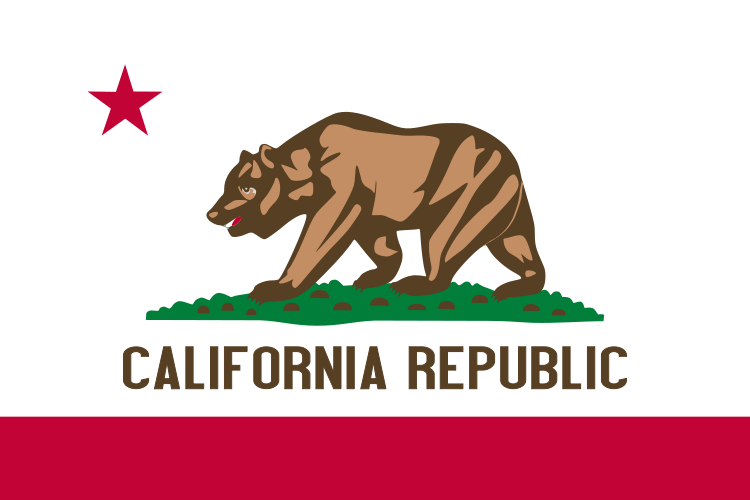 It is typical for candidates to speak in platitudes on the campaign trail. As the son of a teacher and a parent I look at the education system in America as creaking. The average teacher salary in California is $59,345 while the median salary in California for people with between five and nine years of experience is $67,552. In other words, we grossly underpay our teachers and undervalue our childrens’ future. While the states take the lead on providing for our childrens’ education, the federal government has had a role for quite a long time. The No Child Left Behind Act has done a very good job of leaving all children behind, unless you have a lot of money for private schools. Teaching to tests and eliminating such “frivolities” as orchestra, music, and art, does not make for a well rounded education.
It is typical for candidates to speak in platitudes on the campaign trail. As the son of a teacher and a parent I look at the education system in America as creaking. The average teacher salary in California is $59,345 while the median salary in California for people with between five and nine years of experience is $67,552. In other words, we grossly underpay our teachers and undervalue our childrens’ future. While the states take the lead on providing for our childrens’ education, the federal government has had a role for quite a long time. The No Child Left Behind Act has done a very good job of leaving all children behind, unless you have a lot of money for private schools. Teaching to tests and eliminating such “frivolities” as orchestra, music, and art, does not make for a well rounded education.
What am I looking from the candidates? I want money, plain and simple. I want them to see more money devoted to education. Providing tax breaks is not the answer to me, because it generally robs money from our public school systems. The lack of economies of scale in both the private and the public market for the foreseeable future would be intolerable. In addition, faith need not apply. Want religion? Go to church, temple, or whatever else suits you. Want science, arts, music, reading, language, and social studies? Let’s have that in the schools. I am not opposed to choice of school so long as everyone has that choice, it is not used as a back door for religion, and the basic standards are upheld (including building, health, etc).
How do the candidates rate? According to OnTheIssues.Org John McCain believes in school choice, but does believe creationism should be taught alongside evolution in our schools (but see below). He would fund education by reducing subsidies in other areas, including sugar, oil, and ethanol. He wants tax breaks for charter schools, and he is a strong proponent of vouchers that could be used for any school, including religious schools. He claims the money would not come from other education efforts, but that’s the sort of thinking that only someone who has been in Washington too long could have, and as a fiscal conservative, it offends me.
At that same web site, Barack Obama’s position boils down to this: we don’t pay teachers enough, we didn’t put any money into the No Child Left Behind Act, hire more teachers, pay excellent teachers excellently, provide a capital improvement fund for crumbling buildings, and free education for people who maintain a B average. My problem with Obama’s plan is that it is a wishlist a mile long with a bill to go with, and perhaps even more than I could stomach, and he does not provide a way to pay for any of it.
Still, on the whole I am far closer to Obama than McCain on education. If we are to err, it seems right to err on the side of too much, rather than too little, education. If people reach their potentials through education, the other problems seem so much easier.
So round one goes to Obama, but it was a decision, not a knockout. In fact, in scoring the candidates, I’d give Senator Obama a B- for having the right idea but not clearly stating how he would pay for it, but Senator McCain a D for bringing church into the back door of schools, but at least stating what he would do. Or put another way: 80/100 for Obama, and 65/100 for McCain, a difference of 15 points. Have faith, Senator McCain. There are many more issues.
 According to the Associated Press, California prison guards now want to recall Governor Arnold Schwarzenegger using the same procedure that removed the previous governor, Gray Davis. What great wrong has Arnold Schwarzenegger committed that he should deserve such an ignominious end? He didn’t give them special treatment, when he cut pay while the budget dispute there drags on.
According to the Associated Press, California prison guards now want to recall Governor Arnold Schwarzenegger using the same procedure that removed the previous governor, Gray Davis. What great wrong has Arnold Schwarzenegger committed that he should deserve such an ignominious end? He didn’t give them special treatment, when he cut pay while the budget dispute there drags on. He was doing just fine at his lovefest in the Twin Cities, but then Senator John McCain started talking about cutting taxes.
He was doing just fine at his lovefest in the Twin Cities, but then Senator John McCain started talking about cutting taxes.  As I wrote earlier, he was palatable because he was talking about the least offensive tax, a corporate tax cut. As he takes a more offensive position by generalzing cuts, especially in light of news like the Federal Highway Fund running out of money, now I’m giving Obama the win for the economy, and McCain loses personality points for pandering.
As I wrote earlier, he was palatable because he was talking about the least offensive tax, a corporate tax cut. As he takes a more offensive position by generalzing cuts, especially in light of news like the Federal Highway Fund running out of money, now I’m giving Obama the win for the economy, and McCain loses personality points for pandering. Seven years and six months into his administration, President Bush seems to have realized that Vladamir Putin isn’t always such a nice guy. The Wall Street Journal reported today that the administration is putting all bilateral contacts with Russia
Seven years and six months into his administration, President Bush seems to have realized that Vladamir Putin isn’t always such a nice guy. The Wall Street Journal reported today that the administration is putting all bilateral contacts with Russia 